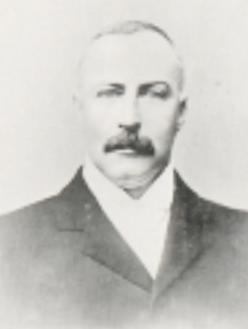Thomas Graham (barrister) facts for kids
Quick facts for kids
The Honourable
Sir Thomas Lynedoch Graham
|
|
|---|---|
 |
|
| Prime Minister of Cape Colony Acting |
|
| In office June – August 1902 |
|
| Monarch | Edward VII |
| Governor | Walter Hely-Hutchinson |
| Preceded by | Gordon Sprigg |
| Succeeded by | Gordon Sprigg |
| Judge President of the Eastern Districts Local Division of the Supreme Court of South Africa | |
| In office 1913–1937 |
|
| Preceded by | John Gilbert Kotzé |
| Judge of the Eastern Districts Court of the Supreme Court of South Africa | |
| In office 1904–1913 |
|
| Attorney-General of Cape Colony | |
| In office 1902–1904 |
|
| Prime Minister | Gordon Sprigg |
| Preceded by | James Rose Innes |
| Succeeded by | Victor Sampson |
| In office January – June 1898 |
|
| Prime Minister | Gordon Sprigg |
| Preceded by | Thomas Upington |
| Succeeded by | Richard Solomon |
| Colonial Secretary of Cape Colony | |
| In office 1900–1902 |
|
| Parliament of Cape Colony | |
| In office 1898–1904 |
|
| Personal details | |
| Born | 5 May 1860 Grahamstown, Cape Colony |
| Died | 7 May 1940 (aged 80) Union of South Africa |
| Nationality | British, South African |
| Political party | Progressive |
| Alma mater | St. Andrew's College Clare College, Cambridge |
| Profession | lawyer, judge |
Sir Thomas Lynedoch Graham (5 May 1860 – 7 May 1940) was an important South African judge and politician. He played a big role in the legal system and government of the Cape Colony.
Early Life and Education
Thomas Graham was born in Grahamstown, Cape Colony, on May 5, 1860. This town was actually named after his ancestor, Colonel John Graham. Colonel Graham founded the town in 1812.
Thomas went to school at St Andrew's College in Grahamstown. After that, he studied at Clare College, Cambridge in England. In 1885, he became a lawyer. This is known as being "called to the bar" by the Inner Temple.
Legal and Political Career
When Thomas Graham returned to South Africa, he became a lawyer. Lawyers who argue cases in court are called "advocates". He worked for the Supreme Court of Cape Colony. In 1898, he became a King's Counsel (KC). This means he was a very experienced and respected lawyer.
Soon after, he was elected to the Cape Colony Legislative Council. This was the Upper House of the Parliament of Cape Colony. It was like one part of the government's law-making body. He was then made Attorney-General in Sir Gordon Sprigg's government. The Attorney-General is the chief legal advisor to the government.
However, in June 1898, the government lost a "vote of no confidence". This means that the other politicians no longer supported the government, so it had to resign.
Two years later, Sir Gordon Sprigg was back in government. This time, Graham was the Colonial Secretary. This job meant he managed many of the colony's daily affairs. In 1902, he became Attorney-General again. From June to August 1902, he even acted as Prime Minister. He filled in while Sprigg was away in London for the Coronation of King Edward VII.
In 1904, Sprigg's government lost power again. Graham was then appointed as a judge. In 1913, he became the Judge-President of the Eastern Districts Local Division of the Supreme Court of South Africa. This meant he was the head judge for that region, based in his hometown. He held this important position until he retired in 1937.
In 1920, he was given the title of Sir in the New Year Honours. This was a special award from the King.
Sport Participation
Sir Thomas Graham was also good at sports. In September 1882, he played in a tennis tournament in Oxford, England. He also won the South African Doubles Lawn Tennis Championship in 1891.
Besides tennis, Graham loved cricket. He was a fast bowler for the Western Province Cricket Club in Cape Town.
 | Precious Adams |
 | Lauren Anderson |
 | Janet Collins |

